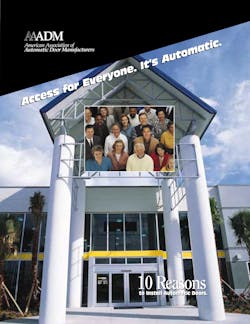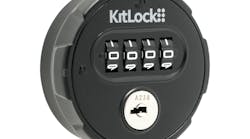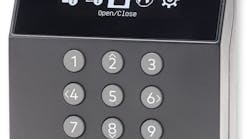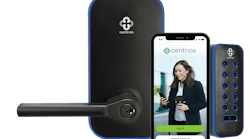Interacting with your client and personally inspecting their premises is a real differentiator between locksmiths and many other security professionals whose interaction with the customer may be limited to a phone call or an email.
With smartphones and other technologies, you may be able to cut down on travel to sites, but you should not pass up the opportunity to closely evaluate a client’s site, and understand their requirements.
Visits to the customer’s location get your feet in the door and allow you to initiate the relationship while you see up close what you can recommend for their safety and security.
Occasionally a sales call can turn into service call, where an adjustment performed by skilled hands mitigates the problem.
Some customers are very cynical, and unless you take an hour, and have to unload your van into their premises, they feel what work you do is trivial and you should not charge them. More experienced customers will watch me closely and learn how from watching, if they can.
I’m always looking for opportunities to generate sales while on a survey, or even while I am performing a service call, although some customers resent it if they think you’re charging them to do a scouting mission.
Most folks recognize that sales are the life blood of commerce, and also appreciate it if you project expertise and are willing to share your knowledge with them.
Sale Or Service?
This could possibly determine which member of your business goes to the site. A salesman is generally regarded as less technically skilled than a technician. Locksmith shops are typically manned with individuals who are versatile to act in either capacity, but most would rather deal with mechanical problems instead of customer relations and sales.
Renovation Or Add On?
Generally a renovation implies a larger scale of work. An add-on is, for example, adding another door to an existing master key system or electronic access control. An upgrade might imply that the existing locks and keys have been installed too long, and the owner has lost control of the number of keys in circulation or who is in possession of the keys. This could involve new keys, cylinders and a new masterkey system, or migrating to electronics.
Response To A Citation
Occasionally you will get a call after an Authority Having Jurisdiction (AHJ) or other official has visited a premises and read the client the riot act, so to speak. One time a client called in a panic because they were visited by Americans with Disabilities Act (ADA) inspectors and numerous door closers were determined to be not adjusted properly.
All door closers will eventually wear out, after which time they will leak or not operate as designed, or will no longer be able to be tuned. Door closers are hydraulic.
There are very specific requirements for how a door closer controls the swing of an opening. These parameters are backcheck (75 degrees), swing speed, latch Speed(5 degrees ), and opening & closing force.
Besides wear on the door closer, on-site conditions might also make door closer adjustments necessary. Things like worn hinges, or a racked or damaged door, can causing the door to rub on the frame, threshold or deck, creating misalignment between the door latch and the frame strikeplate.
Another issue might be backpressure from the building environmental control system due to a change of season. The operation of door closers on fire doors is critical.
It should be noted that doors with low energy door operators also require these adjustments.
Once I got a call from a frantic client who had an AHJ inspect the premises and left a long punch list of problems which needed to be addressed quickly or they’d pull the Certificate of Occupancy.
The facility was a senior care and rehab facility, and moving the clients out was not an option. This was unusual, since the facility had been in operation for a long time and never got flagged like this before.
There may have been a change in jurisdictions and there was new AHJ. We got hired to propose the new equipment, get the AHJ’s approval, and then get the project completed within a timeframe acceptable to the AHJ.
Key Questions
Who is the owner? Who will pay? Who must approve?
I’ve made the mistake of not identifying the real customer before rendering opinions and proposals. Sometimes the person who meets and greets you likes to pretend they are in charge and are decision makers but they aren’t.
In most situations the work you will perform is to some extent elective, or voluntary. You may identify a problem but the customer is not usually obligated to automatically approve the work or your price.
For some customers, your price will always be too high. Most of us have been in that position where we know something has to be repaired and we trust the vendor, but we simply do not have the ability to pay for it. This is embarrassing and frustrating for most folks, so you should be tolerant, and do your best to work out solution you can both live with, especially if life safety is compromised until the work is done.
You inherit some liability if you do not document dangerous conditions on a site, and of course, your primary mission is to render the best professional services possible to your clients.
Locks & Keys
If you are worth your salt, when someone requests a key be duplicated or a rekey, you should ask a few questions about their existing keys and locks. The number one security issue is lost or stolen keys. And most lost and stolen keys go undetected or unreported.
Using a patented keyway will reduce this problem significantly.
It will bring the owner’s attention to key management
It will give the owner “a new lease on the life” by decommissioning all the old keys that ever were made or distributed.
The new cylinders will be more pick and bump resistant.
The owner will come to you – not the local hardware store ‑for additional locks and keys.
Architectural Hardware
As mentioned, door closers are important to the safe and proper operation of doors. When I am on a survey, I am always looking for leaking or malfunctioning hardware, especially door closers.
Exit devices are also excellent candidates for upgrades. Many building codes have been revised to call for exit devices on exit doors. Many premises you visit may have changed how the doors are used, which changes the hardware requirements. An example might be a residence converted into offices or preschool.
Improperly specified or installed deadbolts are also common in all types of occupancies. Many individuals are sold on getting deadbolts to improve security, but then are deprived of the full protection of the deadbolt by an unprofessional installation.
You need to be very careful, however. Once I worked for a locksmith shop where past installers had typically left parts out of the deadbolt installation, namely the reinforcing strike and extra long strike bolts. These two components are not visible once the installation is finished, and are not missed until the door is forced and the deadbolt fails to protect the occupant. So if I told the client his deadbolt was poorly installed, I would be shooting myself in the foot. What made it worse was the sloppy installer was actually the owner’s son who was now managing the shop. A-W-K-W-A-R-D
Access Control
Electronic access control is my number #1 upgrade product to create sales and improve security and safety for clients. Access control is the fastest growing locksmith market segment, and it is a gateway product because it opens up other possibilities like recurring revenue for remote system management, and video surveillance cameras and recorders.
If you do not make the sale, someone else will, and you are likely to lose the site as a customer.
There are many options for access control available, so you can select ones that suit your level of expertise. If a client requests a system that exceeds your abilities or comfort zone, you can either learn something new, or bring in a partnering security professional and share the job.
Options range from standalone to networked, including one or multiple doors and one or multiple credential types (PIN, card, biometrics). Visitor entry control and video surveillance can also be part of your access control plan.
Door Operators
Door operators are an excellent product for the locksmith. Door operators are problem solvers which, unlike many of the draconian products locksmiths sell, actually bring a little joy to the customer.
Most door operators require some installation. They are not DIY and you are not competing with hardware stores. They are not considered security, so alarm companies are probably not competitors. Probably the biggest markets for low energy door operators are retail, multiple occupancies, offices and healthcare related premises.
I used to get a couple of service calls a week just to replace batteries in wireless wall switches. Every job brings you to a new site and provides you an opportunity to create a long term relationship and possibly provide more products and services to the client.
If you are unfamiliar with door operators, I suggest to visit the website that is devoted to all things relating to door operators and where you can obtain product information, training and professional certification; The American Association of Automatic Door Manufacturers (AAADM), http://www.aaadm.com/






